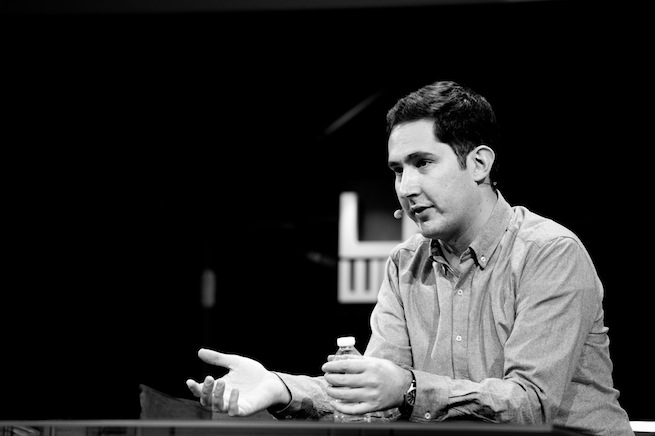
Instagram co-founder Kevin Systrom played a dicey game of semantics in order to expedite the close of the deal between his company and Facebook, a once billion-dollar deal that was losing value with each passing day.
Testifying at a Fairness Hearing at the California Corporations Department in late August, Systrom, according to transcripts obtained by the New York Times, said that his company did not receive “any formal offers or term sheets” immediately preceding negotiations with Facebook. At best, those statements are a distortion of the truth. At worst, they amount to perjury.
Facebook declined to comment on Systrom’s testimony at the Fairness Hearing.
VentureBeat first broke the news that Twitter presented Instagram with a serious offer in the hundreds of millions of dollars range and a corresponding term sheet while the photo-sharing startup was negotiating a $50 million round of funding. Instagram, however, never signed anything. At the time, our sources, which were familiar with the negotiations, confirmed these details, and we still believe them to be accurate.
Nick Bilton at the New York Times surfaced a bit more information on the proposed deal, reporting yesterday that Twitter actually offered $525 million in cash and stock, and that negotiations went up until March 20. Just three weeks later, on April 9, Facebook announced that it had agreed to acquire Instagram for $300 million in cash and 23 million shares. Bilton’s sources said that Twitter would have liked the opportunity to counter and was prepared to do so. VentureBeat heard the same version of events.
The mammoth Facebook-Instagram deal eventually closed, but only after that all-important Fairness Hearing where the California Corporations Department, based on Systrom’s testimony, granted Facebook a permit to issue stock in Instagram. The deal was valued at $715 million when it officially closed in October.
Based on what we know, Systrom’s testimony to the department was not wholly accurate. Whether his statements constituted perjury, we can’t say. Systrom, as Bilton pointed out, was careful with his words, and also deliberate in how he handled the negotiations with Twitter.
We suspect that the repercussions of Systrom’s cunning are already in the works: a destroyed relationship with Twitter and the start of a vicious war for attention.
Photo credit: leweb/Flickr

